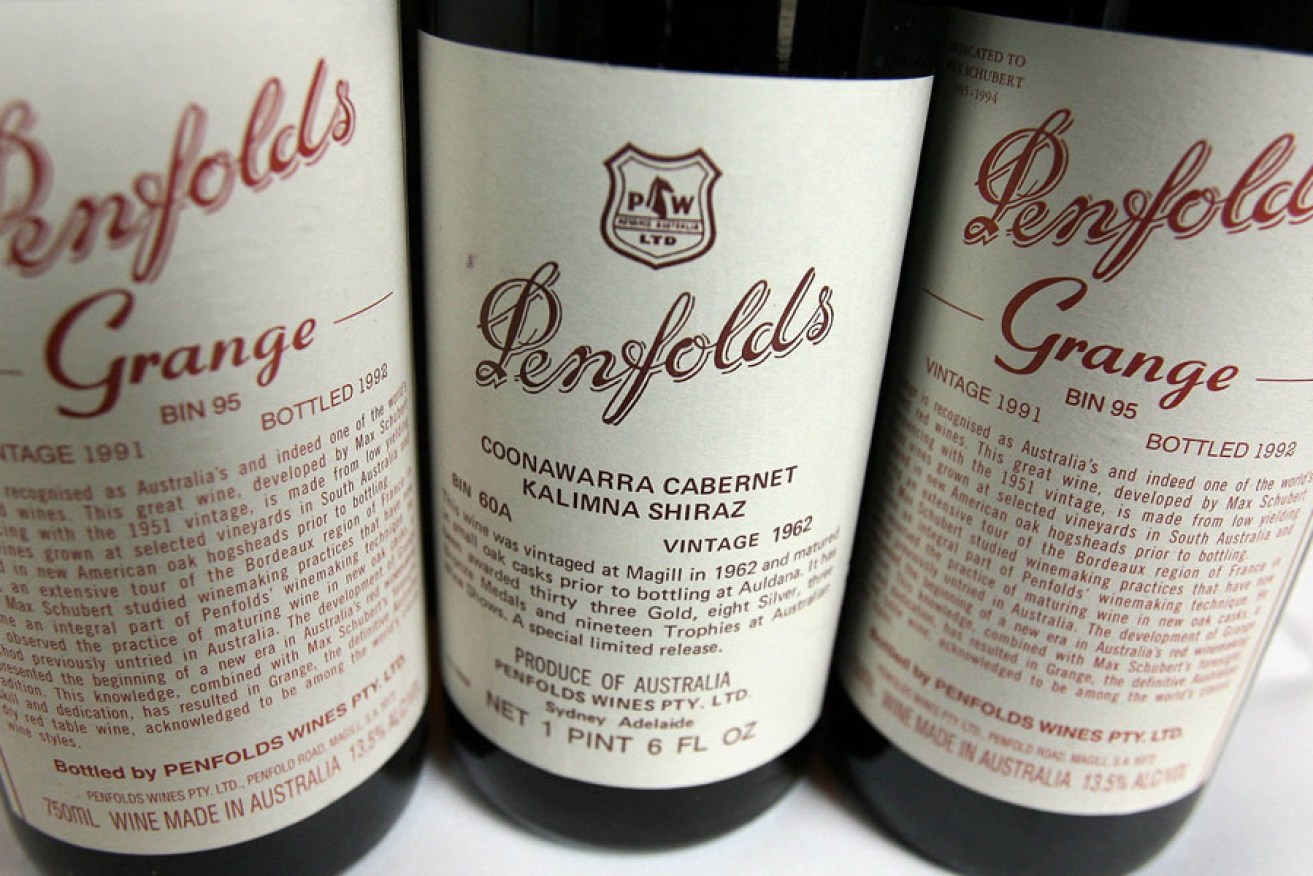It’s technology that would make Q proud: glue that can store microscopic information.
Like a scene out of a Bond movie or Minority Report, this glue – and other fluids mixed with paint or applied to surfaces – acts as a tiny gel screen that can be scanned to retrieve the product’s information and history to prove its authenticity.
The process, developed by Australia’s CSIRO, is now being applied to everything from the paint on vehicles to zoo animals.
The fluid contains more than a thousand microscopic dots, each printed with a unique code registered to you and is said to be “virtually impossible” to remove.
And it may soon be protecting the integrity of South Australia’s food and wine industry.
For decades the counterfeiting of Australia’s prize-winning wines has been an expensive fact of life for vignerons.
And for consumers, it takes only one insipid rip-off encased in a recycled bottle dressed up with perfect labels to make you wary of fakes and ruin your relationship with your favourite drop for life.
Fakes are such a big issue for food and wine internationally that in June this year Australian Mall, a Chinese site dedicated to selling authentic Australian products online, was launched.
Treasury Wine Estates, the producer of Penfolds, announced it would be one of the Australian sellers, offering its premium wines to more than 100 million active customers.
South Australian Wine Association chief executive officer Brian Smedley said security became such an issue several years ago that the association held a forum in 2014 for producers on brand and trademark protection.
He said the forum uncovered a variety of security methods working to stem the flow of forgeries impacting on South Australia’s $1.9 billion wine industry.
“The fact is so many people said we do have a solution to this or we’re working on a solution,” he said.
Smedley said what wines were protected and how were individual producer’s decisions and all depended on their unique market circumstances.
“Are they prepared to pay for a security device and how much is this going to cost per bottle?”
After experiencing its wines being duplicated days after debuting in Asia, Beston Global Food Company searched for ways to protect its consumable products and prove their pedigree.
Beston chairman Dr Roger Sexton said food security and counterfeiting were becoming key global issues and behind the company’s quest to find a system that would stymie the forgers.
During the next few months they will develop labels and other devices with the high-tech substance to authenticate and provide information on wine, dairy, seafood, health food and meat products to be exported to China, Southeast Asia, the Americas, Europe and Middle East.
DataDot Technology Limited (ASX DT) has granted an exclusive five-year licence of its DataTrace authentication technology to Brandlok, a joint venture with Beston, for incorporation into food and wine labels and devices to prove the authenticity of these exported products.
The DNA tracker will establish identification of raw material inputs and verifiability, track and trace the production process and expose product counterfeiting.
Beston applies a “paddock-to-the-plate” approach to keep control of the product quality and security, however, while it and other Australian producers strive for world-best, they are constant targets of counterfeiters taking advantage of the country’s excellent reputation for quality goods.
“The seals will be applied to all of the clean and green products exported by BGFC so that customers can track and trace the ingredients from paddock to plate and verify for themselves that the products are safe to eat,” Sexton said.
No sooner has an Australian product come out, it is reproduced – and wine is no exception.
Sexton said by 2050 the world’s population will be nine billion and, as it increased, so too did the demand for food, in particular higher-quality and secure food.
He said rising water scarcity would also add to a reduction in the food supply and contribute to raised costs.
“There is a $2.3 billion per annum global demand for food currently,” Sexton said.
“Future food security will be an increasing important challenge.”






